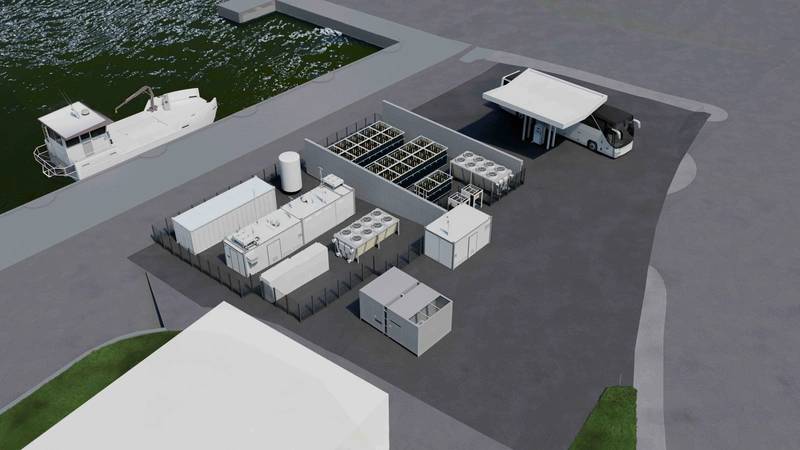Klaipėda Port Leading the Green Hydrogen Revolution in Baltic States
Key Ideas
- Klaipėda Port aims to become the first in Lithuania and the Baltic States to produce and supply green hydrogen for various purposes.
- The hydrogen plant, to be installed in a standard sea container, will have a production capacity of 127 tons annually, serving vessels, vehicles, trucks, and buses.
- Partnerships with companies like Bega and LTG Group reflect a commitment to exploring green hydrogen applications in equipment within the port and railway transport.
- The project, funded by the EU's NextGenerationEU recovery and resilience facility, has an estimated cost of USD$13 million, with significant EU financing.
Klaipėda Port in Lithuania is making significant strides towards becoming a pioneer in green hydrogen production and distribution in the Baltic States. The port is on the cusp of initiating construction for a specialized site that will house a hydrogen plant within a standard sea container. This plant is expected to have an annual production capacity of 127 tons, catering to a wide range of needs from vessels to private transportation like vehicles, trucks, and buses. Partnerships with key stakeholders such as the port stevedoring company 'Bega' and LTG Group highlight a collective effort to explore and implement green hydrogen applications in port equipment and railway transport. The entire project is part of the Economic Recovery and Resilience Plan 'Next Generation Lithuania,' which is supported by funding from the European Union's NextGenerationEU recovery and resilience facility. With an estimated project cost of around USD$13 million, of which nearly half is financed by EU funds, Klaipėda Port is well underway in its journey towards sustainable and eco-friendly hydrogen solutions.
